I went inside the East Coast's largest port and saw how a backlog of goods are moved amid the never-ending chaos of ships, trucks, and trains
Thomas Pallini

Touring the Port of New York and New Jersey.Thomas Pallini/Insider
- The Port of New York and New Jersey has seen cargo volumes skyrocket during the pandemic.
- An increase in e-commerce purchases during the pandemic has resulted in a backlog of goods.
- Larger and larger ships are coming to the East Coast's largest port to help keep goods moving.
Welcome to America's front door.
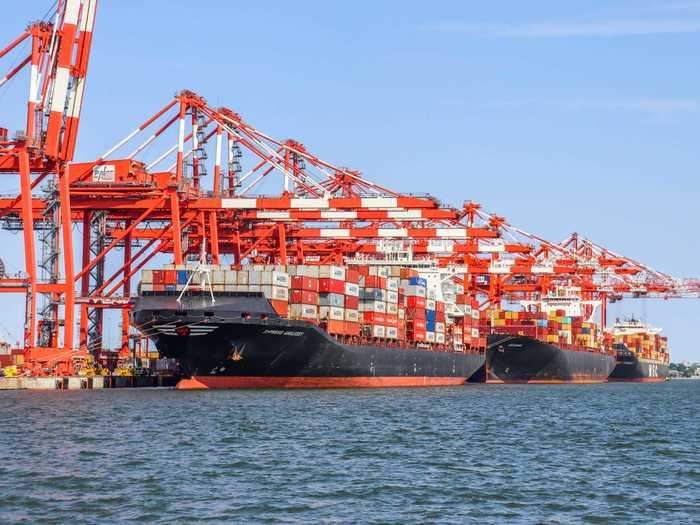
Touring the Port of New York and New Jersey.
Thomas Pallini/Insider
The Port of New York and New Jersey is the East Coast's largest port with container terminals on each side of New York Habor that serve 46.3 million people within a four-hour driving radius.
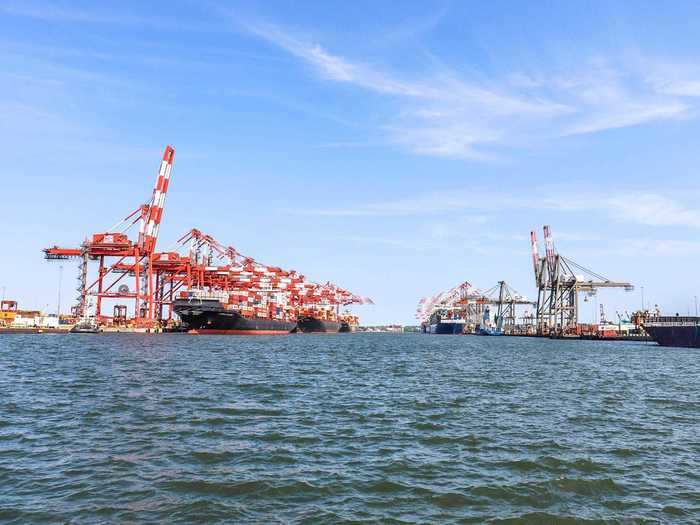
Touring the Port of New York and New Jersey.
Thomas Pallini/Insider
A combination of ships, trucks, and trains all converge here to transport a myriad of goods. And in recent months, business has been booming.
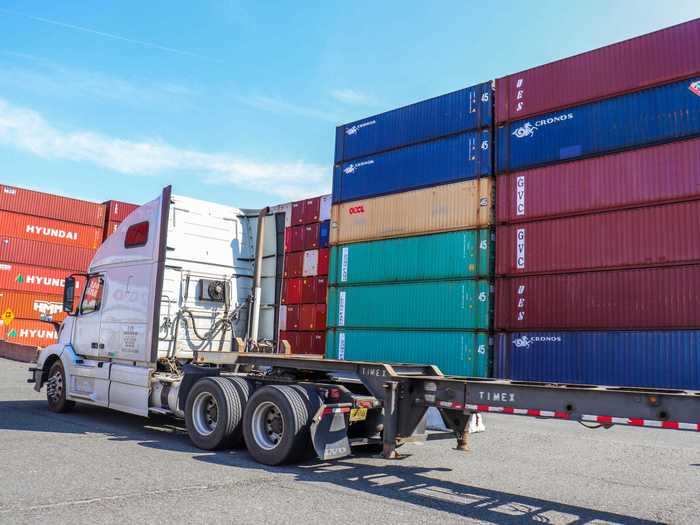
Touring the Port of New York and New Jersey.
Thomas Pallini/Insider
A backlog of consumer goods built up during the pandemic contributed to higher than normal shipping levels as locked-down consumers fueled an e-commerce craze.
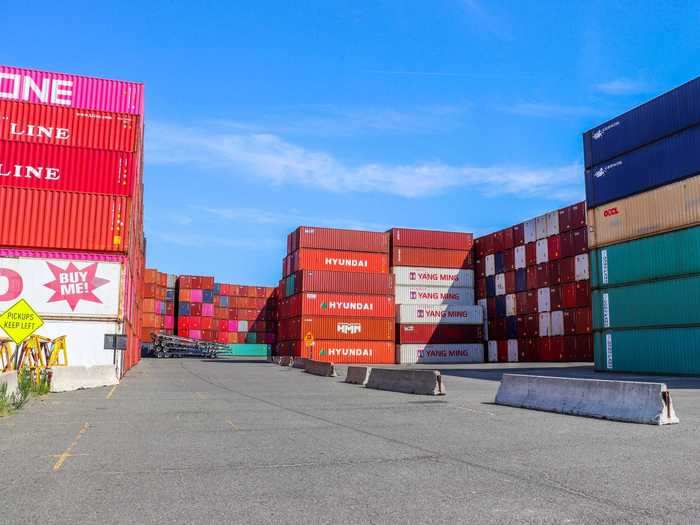
Touring the Port of New York and New Jersey.
Thomas Pallini/Insider
It's up to the port to help get consumers the items they ordered and keep global trade running smoothly.
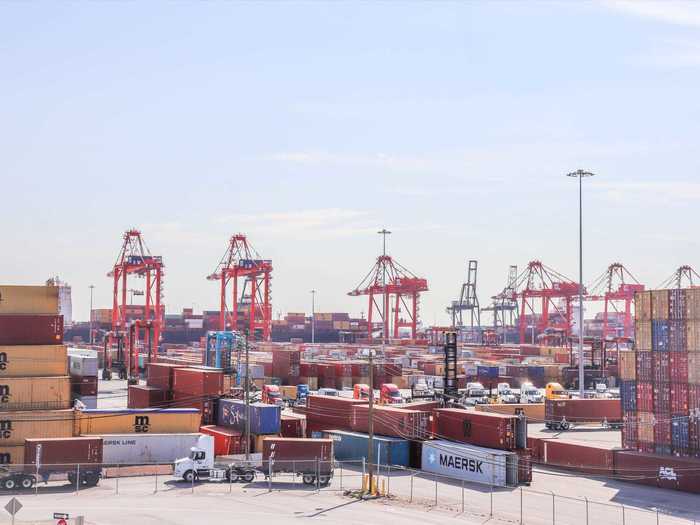
Touring the Port of New York and New Jersey.
Thomas Pallini/Insider
I went behind the scenes in the controlled chaos of the Port of New York and New Jersey. Here's what I saw.
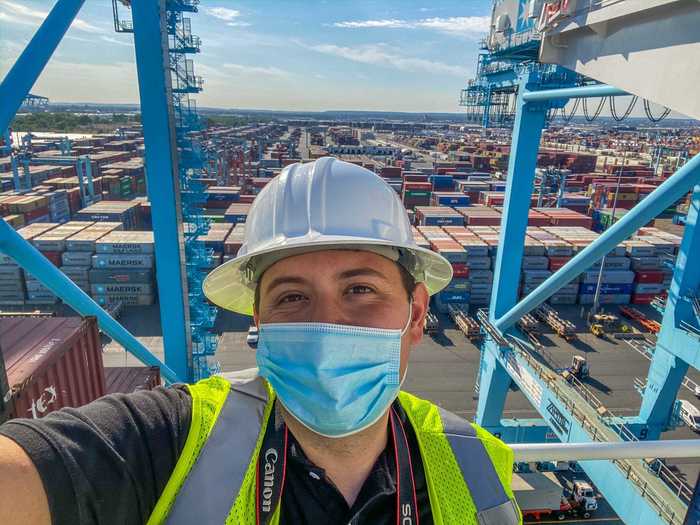
Touring the Port of New York and New Jersey.
Thomas Pallini/Insider
It all starts with a customer. A consumer business on one side of the world buys a product that's built on the other.
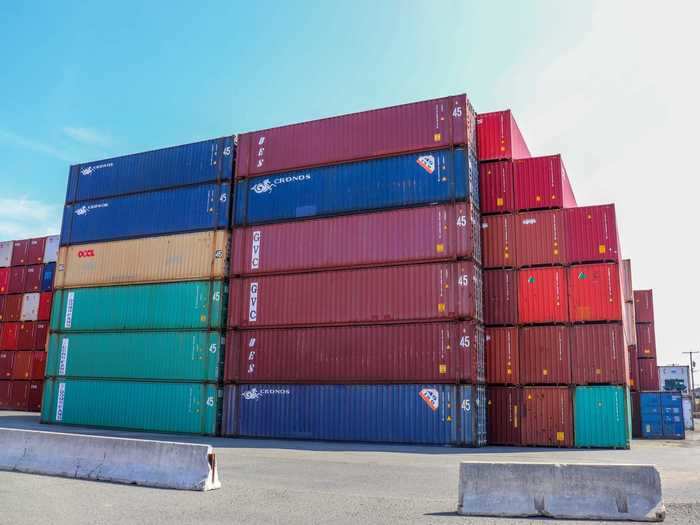
Touring the Port of New York and New Jersey.
Thomas Pallini/Insider
One way to transport those products is via ocean shipping. Goods are put into a container that's then loaded onto an ocean-faring ship and sent across the globe.
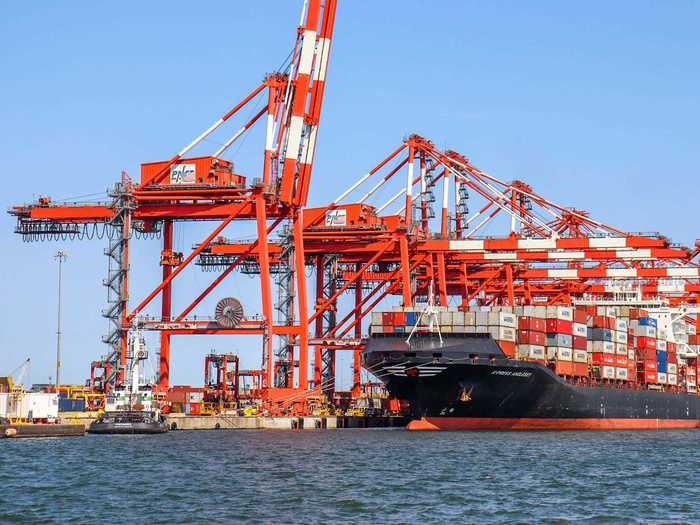
Touring the Port of New York and New Jersey.
Thomas Pallini/Insider
Cargo volumes in 2020 actually started off worse than 2019 by a small variance but then rapidly worsened in the early months of the pandemic. In August, however, volumes jumped and the port quickly outpaced its 2019 volume from August through December.
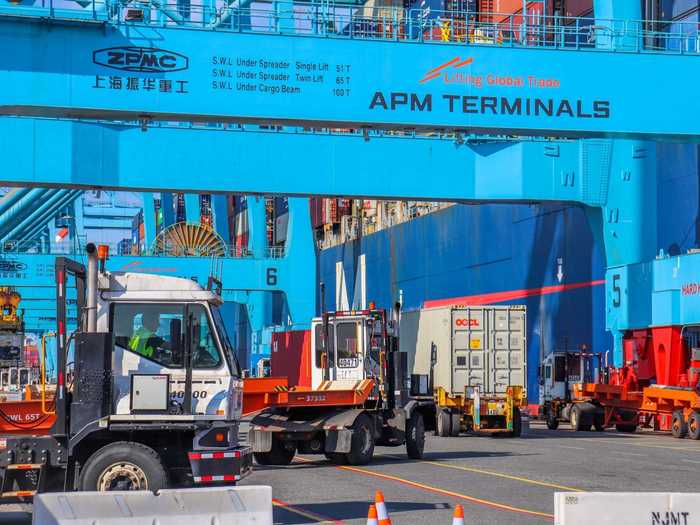
Touring the Port of New York and New Jersey.
Thomas Pallini/Insider
A total of five months in 2020 saw what is normally eight months' worth of volume.
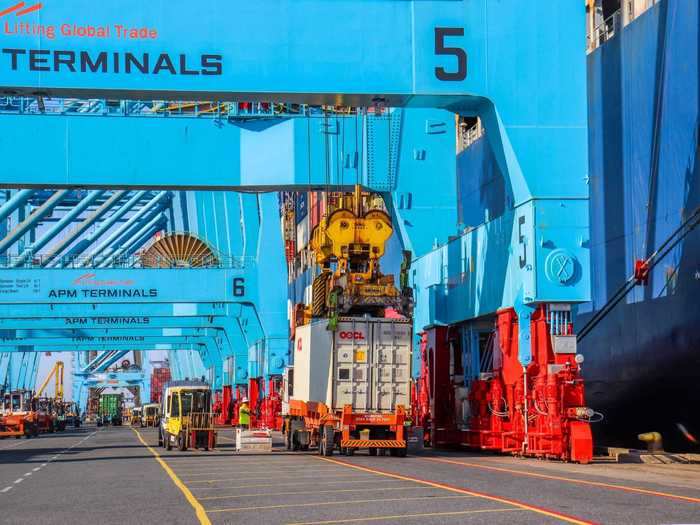
Touring the Port of New York and New Jersey.
Thomas Pallini/Insider
A ship's capacity is measured in 20-foot-equivalent units, or TEUs. One 20-foot container equals one TEU while a larger 40-foot container would be two TEUs.
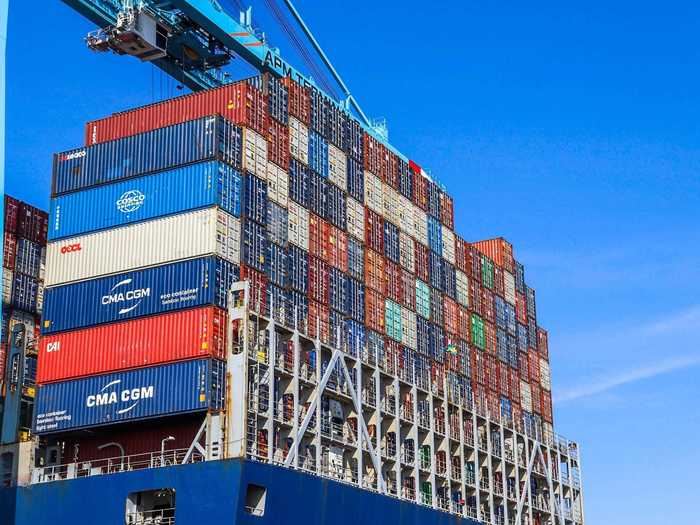
Touring the Port of New York and New Jersey.
Thomas Pallini/Insider
The Port of New York and New Jersey handled 7.5 million TEUs in 2020.
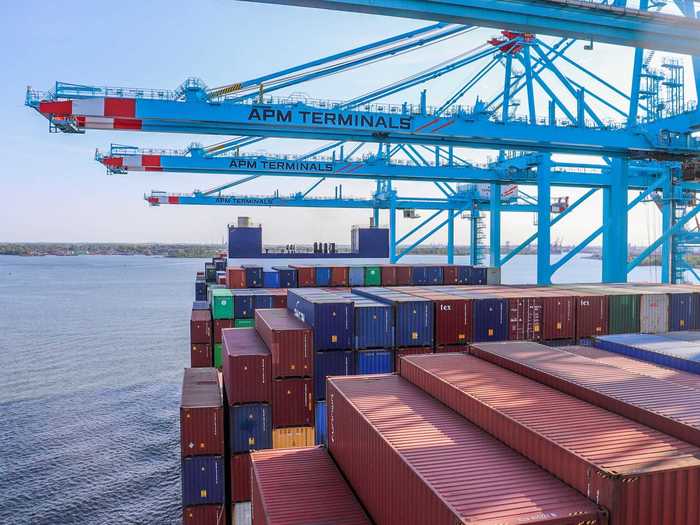
Touring the Port of New York and New Jersey.
Thomas Pallini/Insider
Containerized shipping was actually created at the Port of New York and New Jersey in 1956. Before that, goods were offloaded onto trucks and driven long distances across the US.
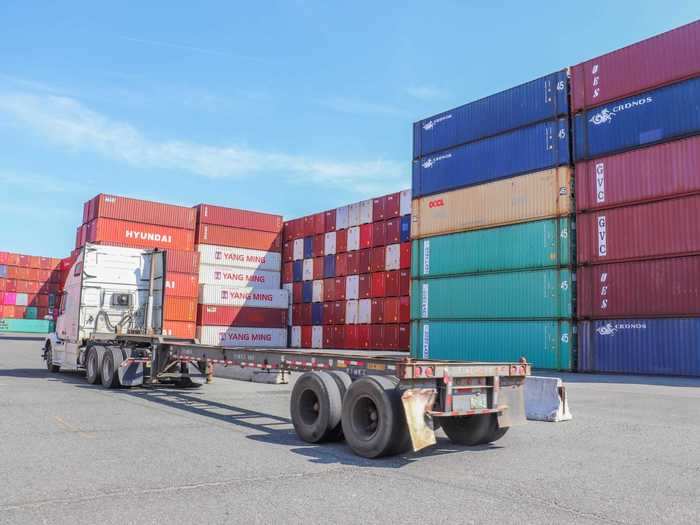
Touring the Port of New York and New Jersey.
Thomas Pallini/Insider
Now, one ship can visit multiple ports, picking up and dropping off containers as it goes.
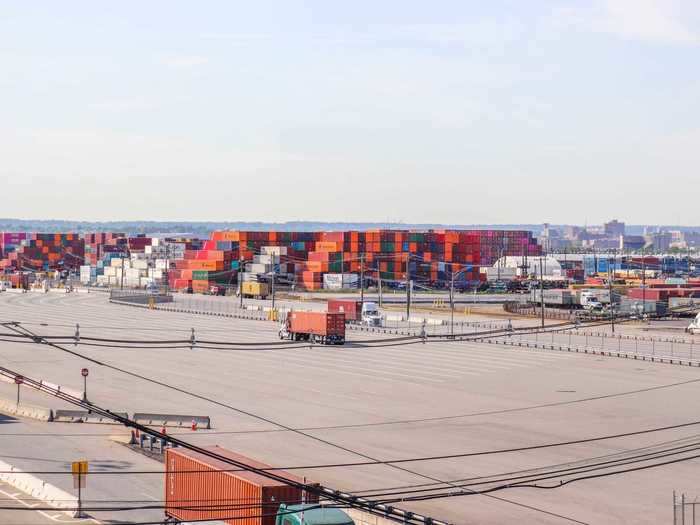
Touring the Port of New York and New Jersey.
Thomas Pallini/Insider
Consolidation in the ocean shipping industry has resulted in fewer companies. Common names at this port are Maersk, CMA CGM, and Ocean Network Express.
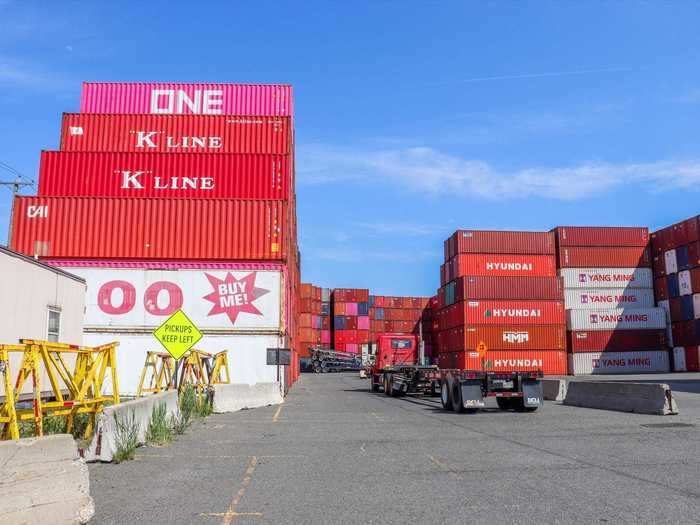
Touring the Port of New York and New Jersey.
Thomas Pallini/Insider
Sharing agreements allow shipping companies to use space on each other's boats. An Evergreen container on a CMA CGM ship isn't uncommon, for example.
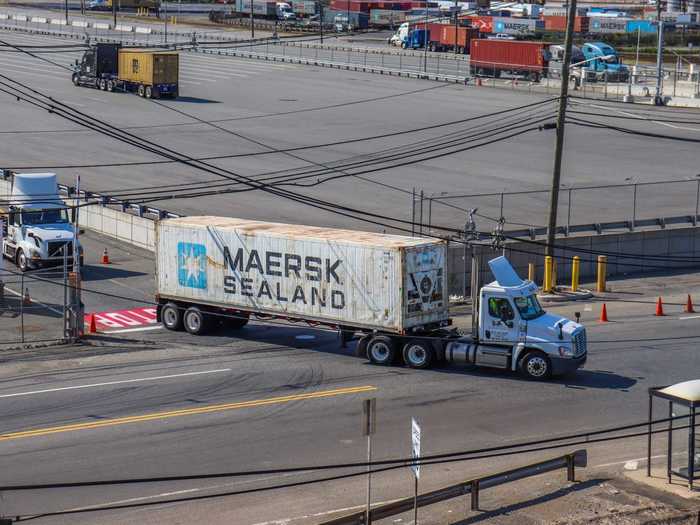
Touring the Port of New York and New Jersey.
Thomas Pallini/Insider
Containers are cheap enough to buy at a cost of around $3,500 apiece. Tens of millions of these containers could be found across the world from the decks of container ships to the backs of trucks and to ports like this one.
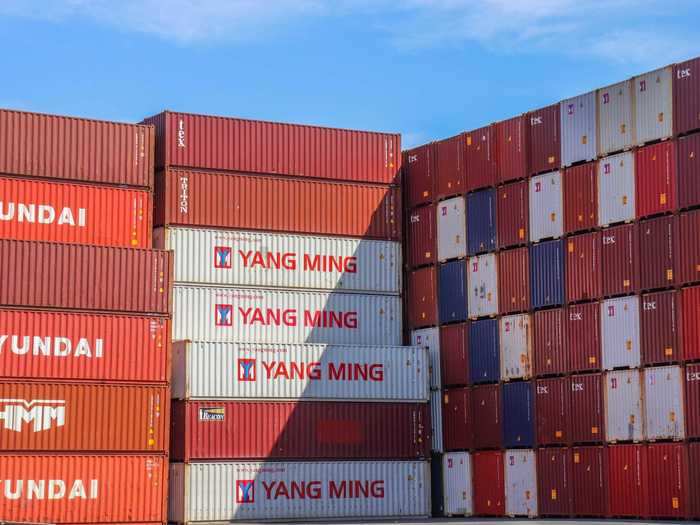
Touring the Port of New York and New Jersey.
Thomas Pallini/Insider
They're almost constantly in motion and identified by tracking numbers. Containers will often travel empty on container ships and companies will determine whether it's worth it to ship the containers empty or just buy another one.
Touring the Port of New York and New Jersey.
Thomas Pallini/Insider
Just like an airport, this port has its own privately-owned terminals where containers are loaded and unloaded from ships. The north side of the Elizabeth Channel, for example, is home to Port Newark Container Terminal while the south side is home to Maher Terminals.
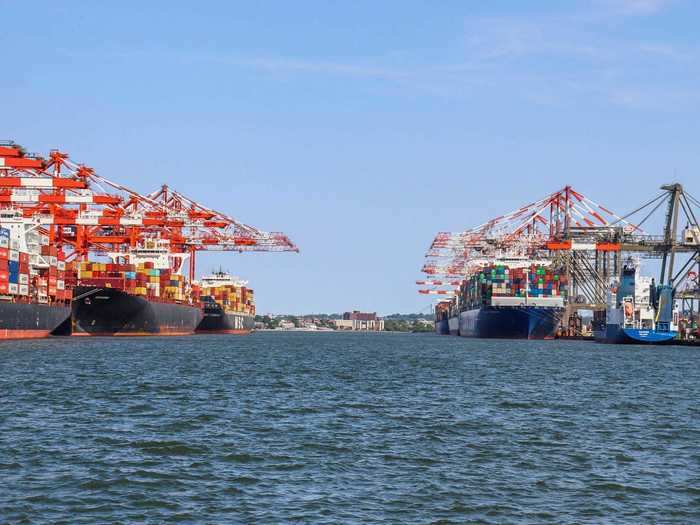
Touring the Port of New York and New Jersey.
Thomas Pallini/Insider
Massive cranes greet the ships and immediately begin offloading and loading containers in a real-world game of Tetris.
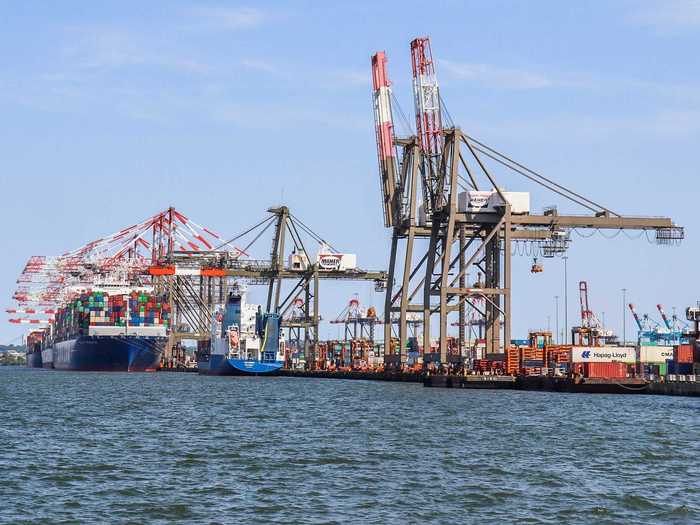
Touring the Port of New York and New Jersey.
Thomas Pallini/Insider
Handling the containers are port workers known as longshoremen. The union positions are highly sought after thanks to good pay and benefits.
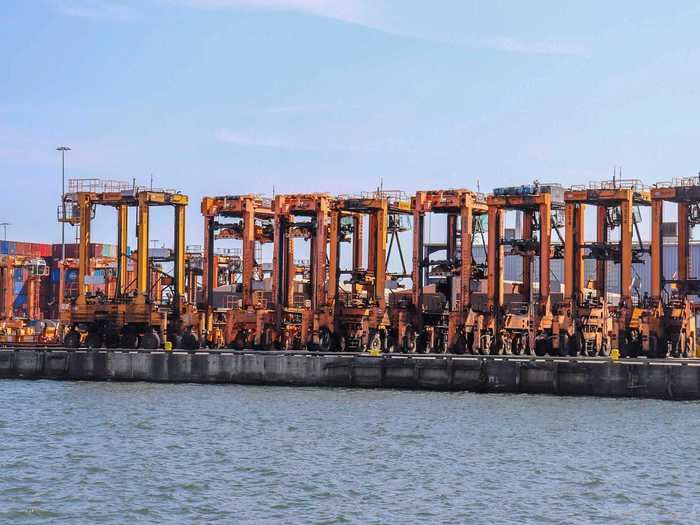
Touring the Port of New York and New Jersey.
Thomas Pallini/Insider
The typical progression for a longshoreman is starting as a baggage handler for cruise lines and then becoming an automobile driver for the car ships. From there, each longshoreman can choose their own specialty and hone their craft.

Touring the Port of New York and New Jersey.
Thomas Pallini/Insider
The Port of New York and New Jersey doesn't just handle containers, however, and other major imports and exports include automobiles...
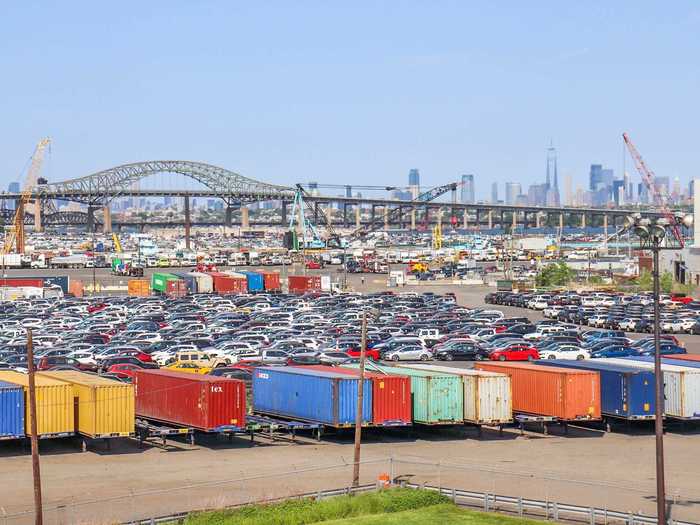
Touring the Port of New York and New Jersey.
Thomas Pallini/Insider
Cement...
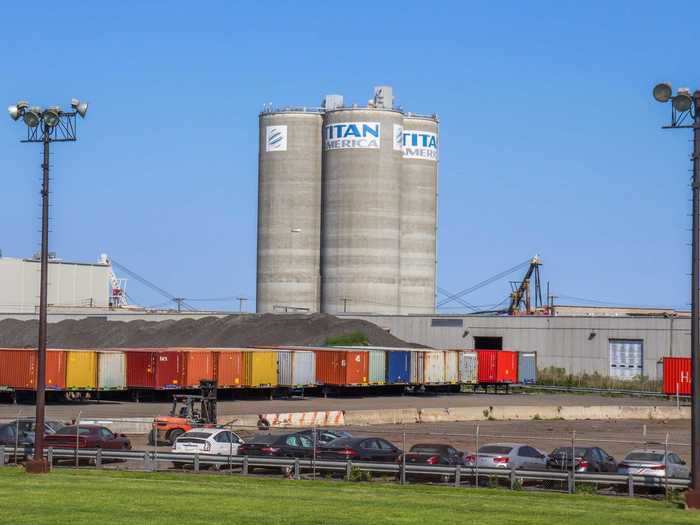
Touring the Port of New York and New Jersey.
Thomas Pallini/Insider
And edible oils. .
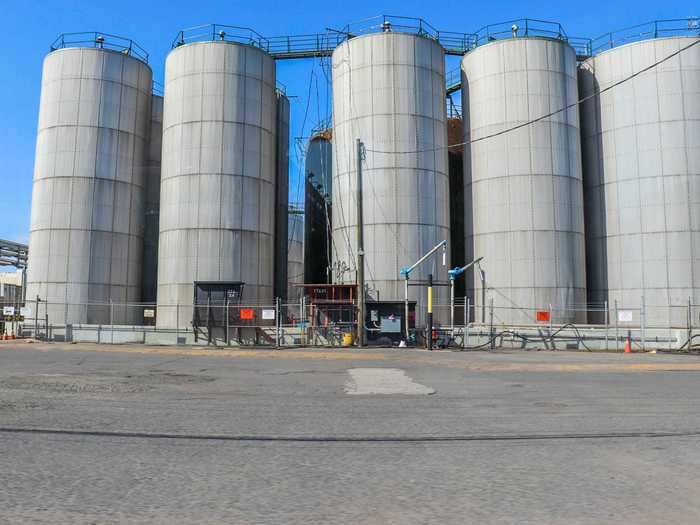
Touring the Port of New York and New Jersey.
Thomas Pallini/Insider
Even scrap metal is a valuable commodity.
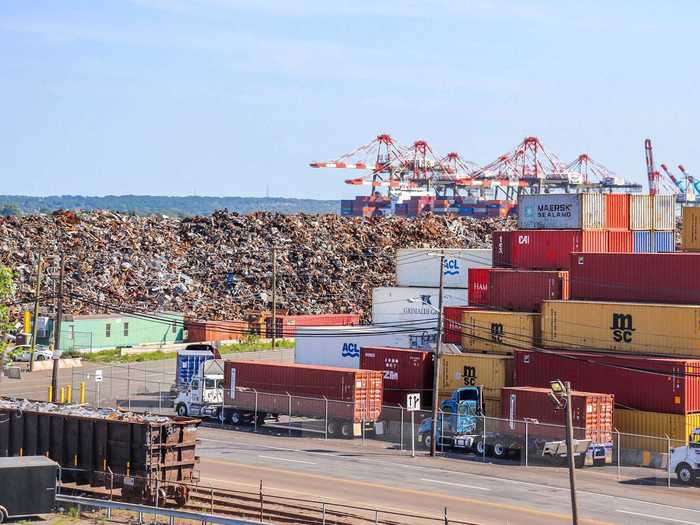
Touring the Port of New York and New Jersey.
Thomas Pallini/Insider
Cruise ship terminals are also under the port's purview but traffic in that sector has been almost entirely quiet for most of 2020 due to the pandemic.
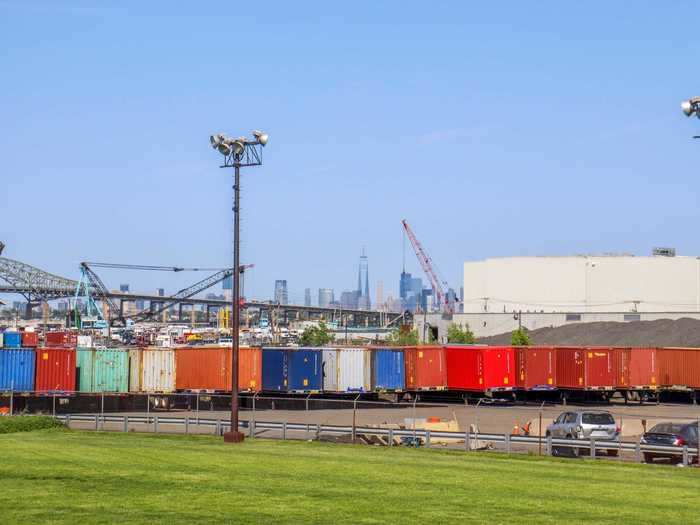
Touring the Port of New York and New Jersey.
Thomas Pallini/Insider
Trucks are weighed when they enter the port and credentials, known as transportation worker identification credentials, are checked. They'll then meet with a longshoreman to arrange a spot to pick up their load.
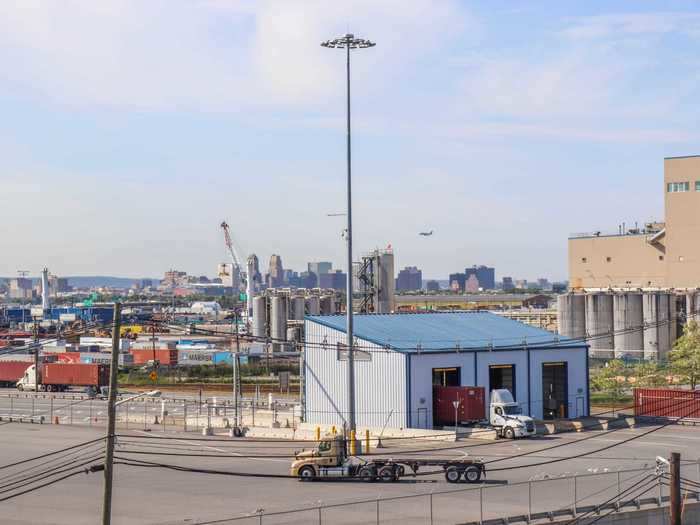
Touring the Port of New York and New Jersey.
Thomas Pallini/Insider
The terminal's computer system then relays a message to another longshoreman, who then retrieves the container. Each truck is different and one can drop off one load and immediately pick up another one.
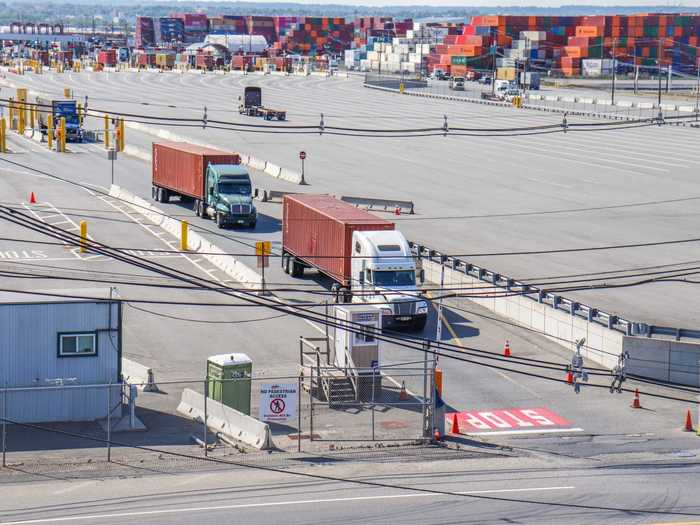
Touring the Port of New York and New Jersey.
Thomas Pallini/Insider
But not all pull the double duty. Some trucks are just picking up while others are just dropping off.
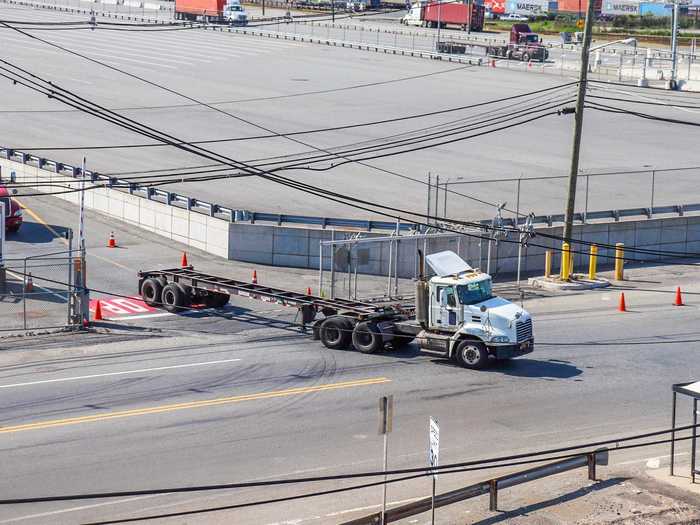
Touring the Port of New York and New Jersey.
Thomas Pallini/Insider
The process looks like a lot of waiting around but trucks should be in and out of the port in under two hours.
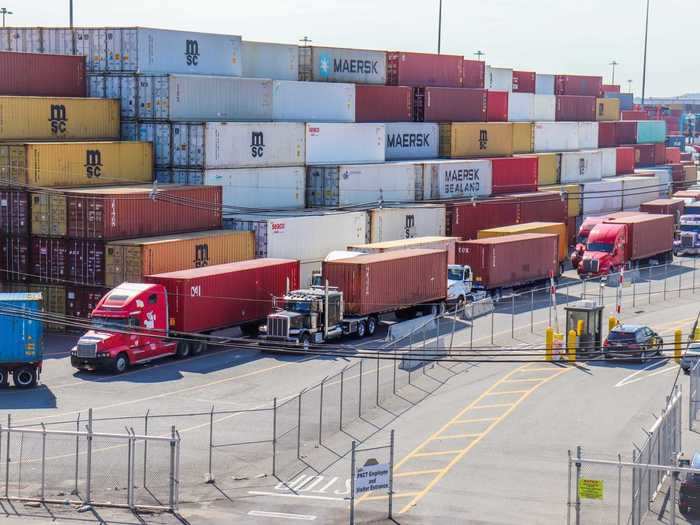
Touring the Port of New York and New Jersey.
Thomas Pallini/Insider
Around 80% of truck drivers are owner-operators, giving them more freedom than a fleet driver for an established company.
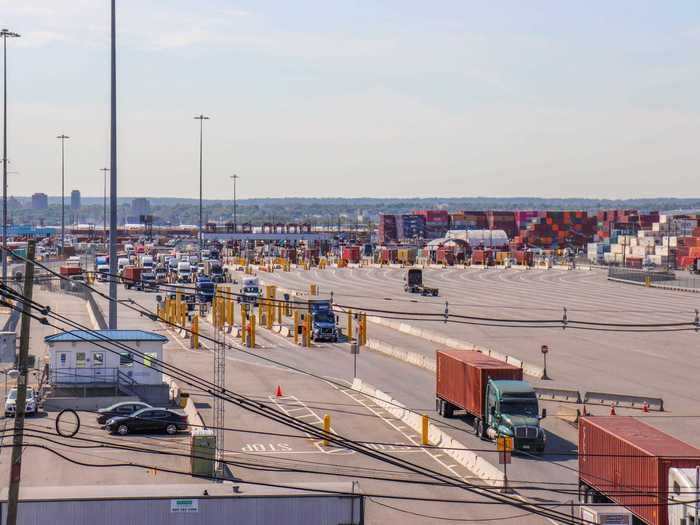
Touring the Port of New York and New Jersey.
Thomas Pallini/Insider
The trucks and rail lines that serve the port can bring goods as far as Tennessee, the Midwest, and Canada. Chicago, for example, is just a two-day rail trip from here.
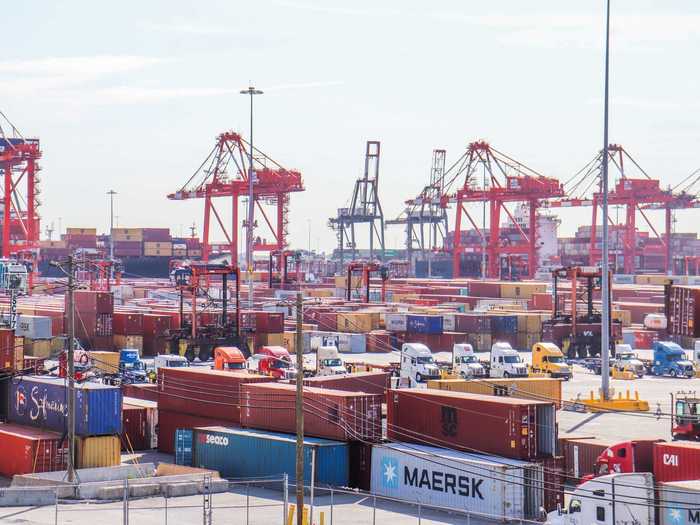
Touring the Port of New York and New Jersey.
Thomas Pallini/Insider
Around 18% of cargo moves out of the port by rail. Some trains leave the port after being given a mile's worth of the 20 and 40-foot containers.
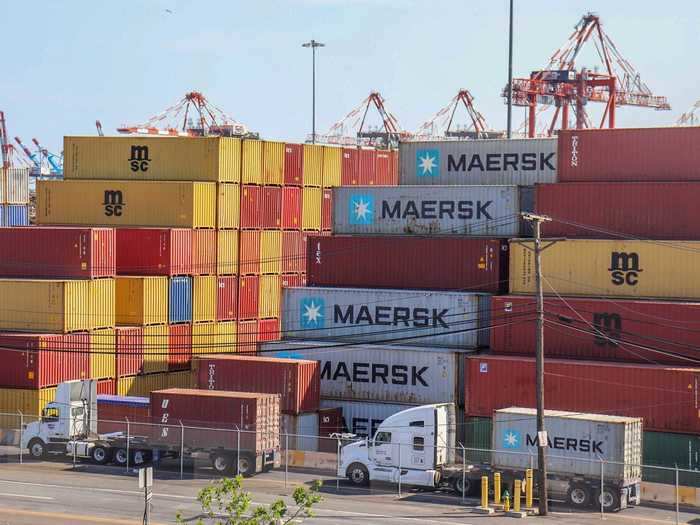
Touring the Port of New York and New Jersey.
Thomas Pallini/Insider
Larger and larger ships have been arriving at this port since the pandemic began.
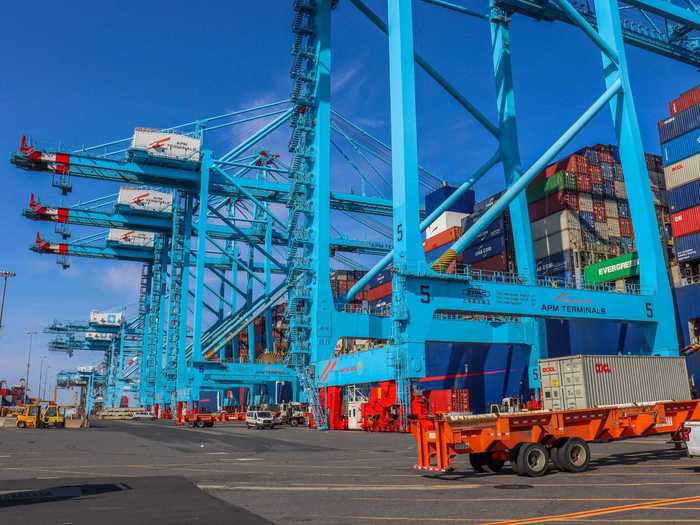
Touring the Port of New York and New Jersey.
Thomas Pallini/Insider
One such ship is the CMA CGM Marco Polo, a container vessel with a maximum capacity of 16,022 TEUs. It's the largest ship to visit the East Coast that can now access the Port of New York and New Jersey because of recent port improvements.
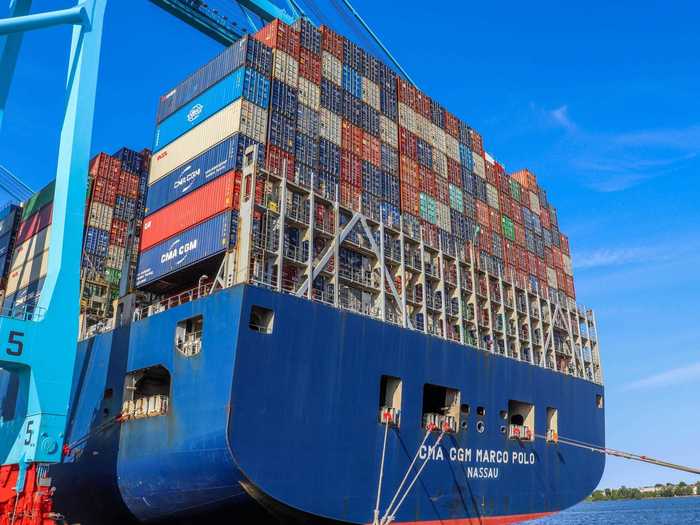
Touring the Port of New York and New Jersey.
Thomas Pallini/Insider
Standing in the way between the port and larger ships, historically, has been the Bayonne Bridge, which connects Bayonne, New Jersey and Staten Island, New York. While ships have grown in size, the bridge has remained the same for nearly 90 years.
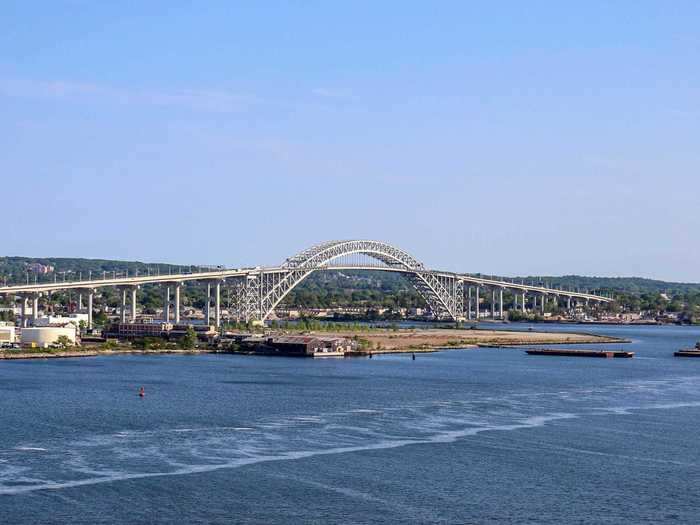
Touring the Port of New York and New Jersey.
Thomas Pallini/Insider
That was until the Port Authority of New York and New Jersey spent $1.7 billion to raise the bridge's roadway to allow larger ships to pass underneath. The new clearance of the bridge is now 215 feet and ships as large as 18,000 TEUs can pass underneath.
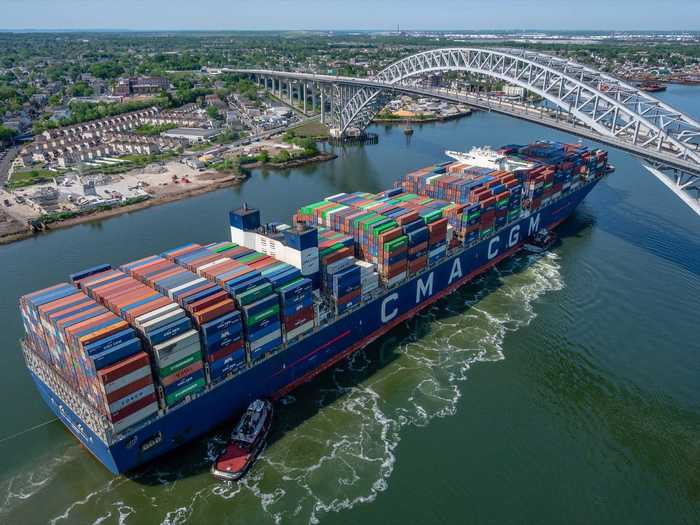
The CMA CGM Marco Polo arriving at the Port of New York and New Jersey.
Port Authority of New York and New Jersey
The port has been seeing a steady stream of larger and larger ships ever since. The CMA CGM Brazil broke the port's record in September, only to have the CMA CGM Marco Polo break it again in May.
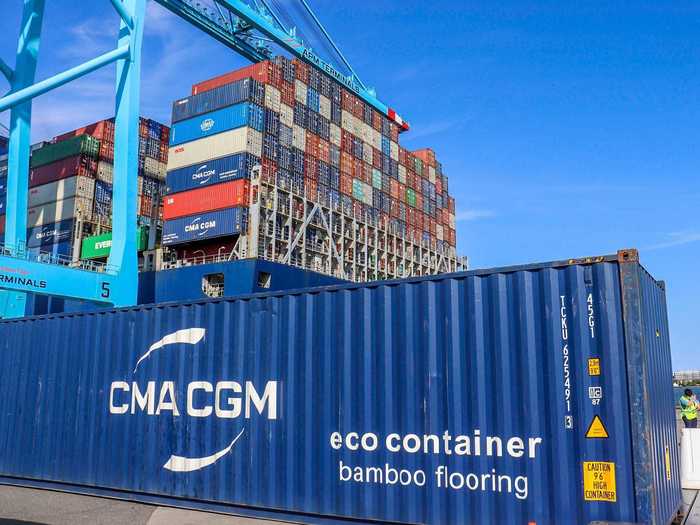
Touring the Port of New York and New Jersey.
Thomas Pallini/Insider
The CMA CGM Marco Polo is considered a "New Panamax" ship since it's greater than 12,500 TEUs. Standard "Panamax" ships were once the largest ships that the Panama Canal could accommodate until larger locks were added in the 2010s.
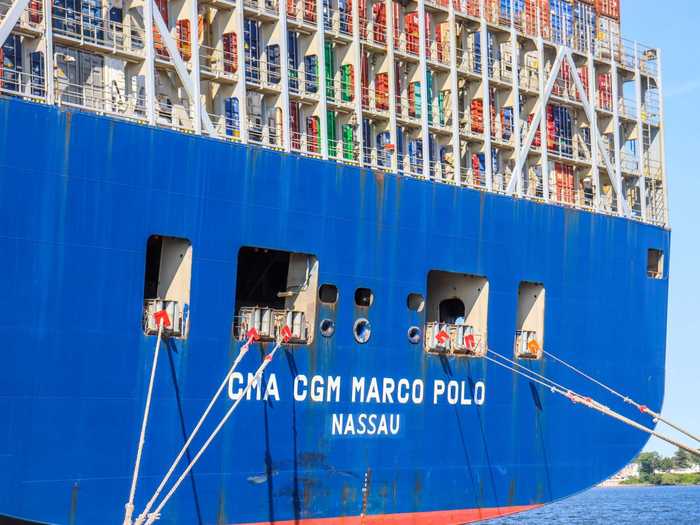
Touring the Port of New York and New Jersey.
Thomas Pallini/Insider
Containers are stacked up on top of each other 200 feet high, with even more below deck.
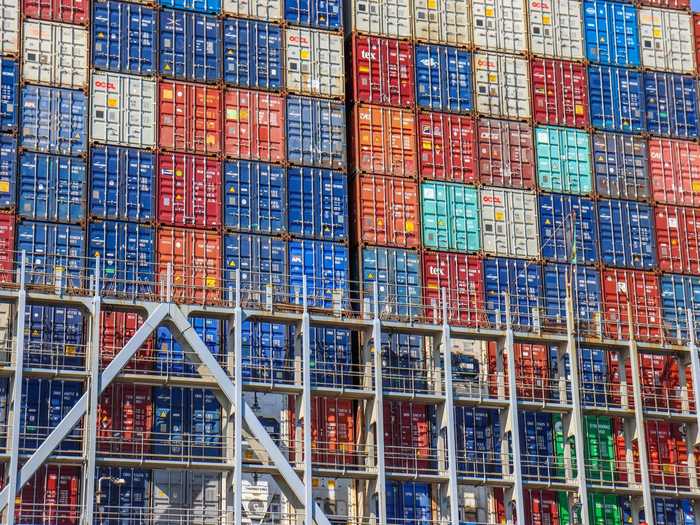
Touring the Port of New York and New Jersey.
Thomas Pallini/Insider
During offloading, a constant flow of these intermediary trucks approach the ship to receive containers.
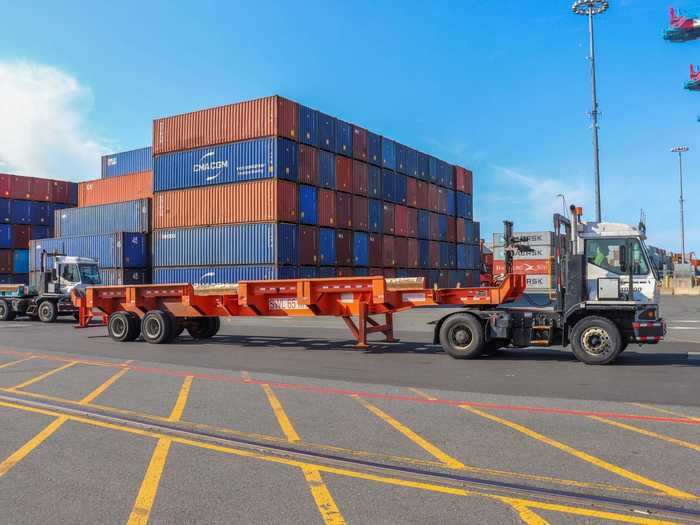
Touring the Port of New York and New Jersey.
Thomas Pallini/Insider
Containers are plucked from the ship by a crane that's operated by a longshoreman sitting 200 feet off of the ground.
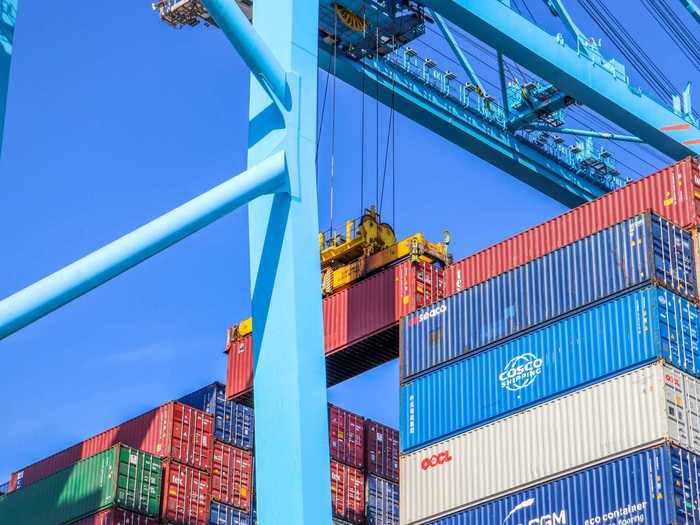
Touring the Port of New York and New Jersey.
Thomas Pallini/Insider
The longshoreman has an overhead view to make collecting the containers easier.
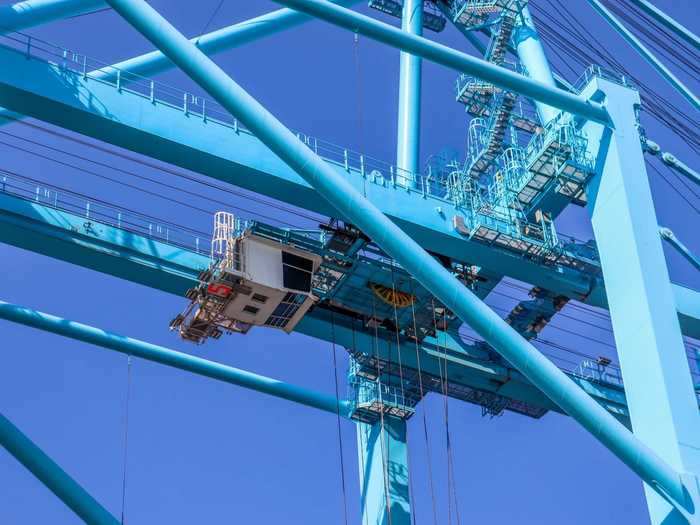
Touring the Port of New York and New Jersey.
Thomas Pallini/Insider
The massive containers are quickly whisked through the air by the crane as if weightless.
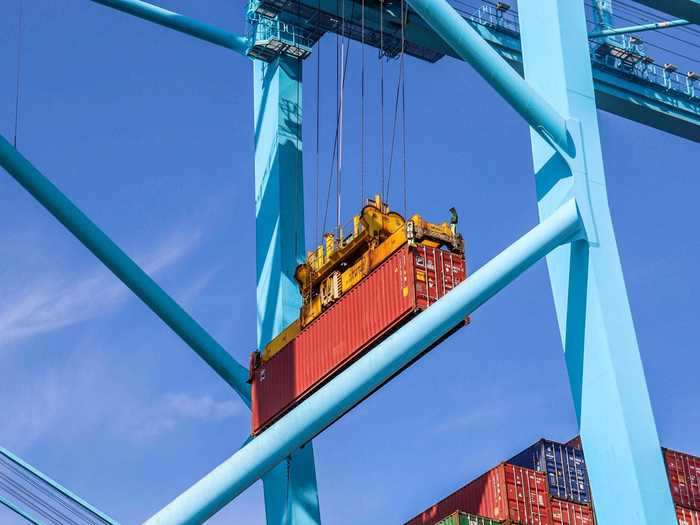
Touring the Port of New York and New Jersey.
Thomas Pallini/Insider
The longshoreman then lowers the crane, aligning the container with the truck below.
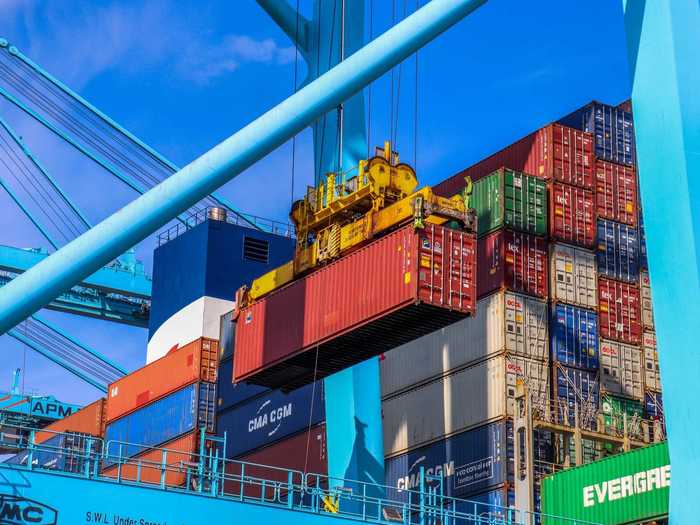
Touring the Port of New York and New Jersey.
Thomas Pallini/Insider
Once it's dropped onto the truck, the container is secured and the truck drives off. It's less than 30 seconds from the time the container is secured until the time the truck is on its way.
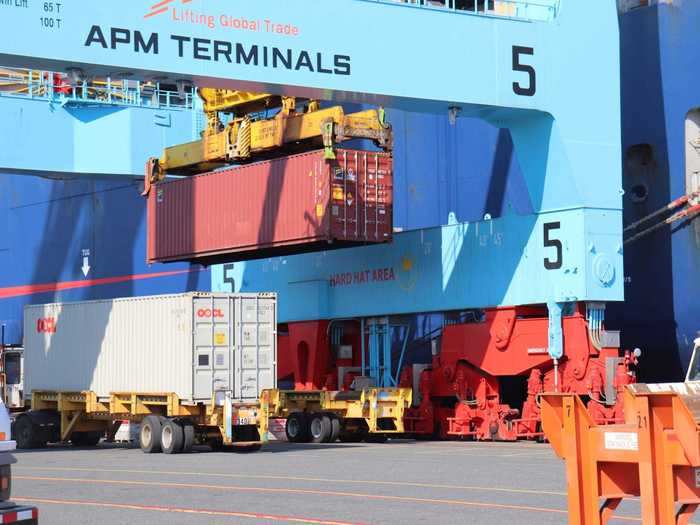
Touring the Port of New York and New Jersey.
Thomas Pallini/Insider
The process continues until all of the containers are offloaded.
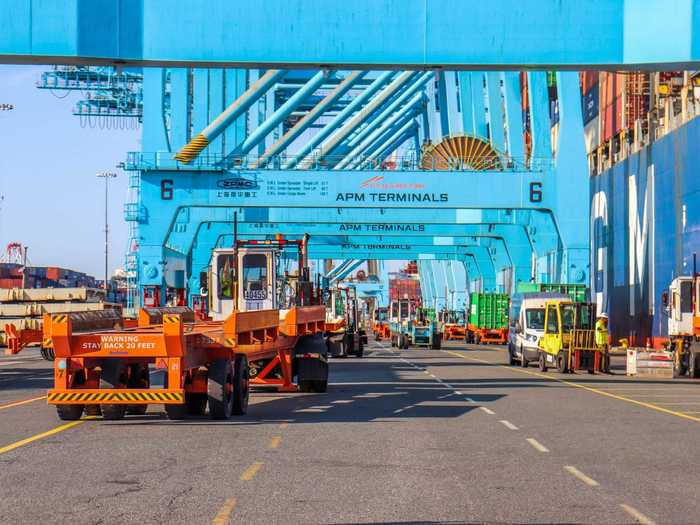
Touring the Port of New York and New Jersey.
Thomas Pallini/Insider
The ship then receives a new load of containers to transport to the other side of the world. Foreign-flagged ships can't move goods between two US ports under the Jones Act.
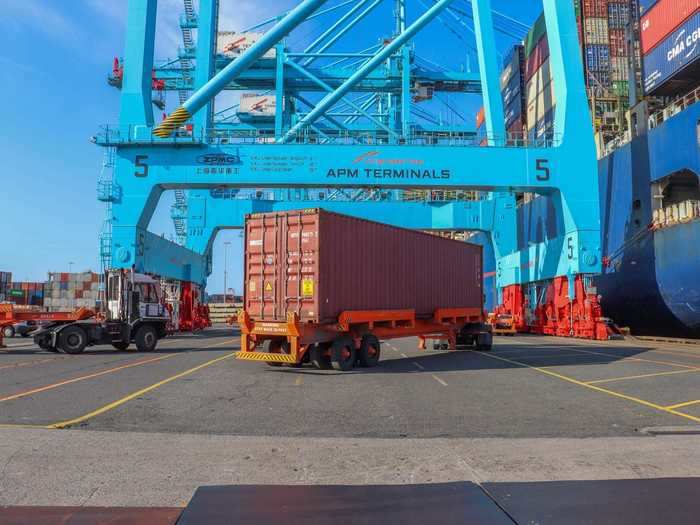
Touring the Port of New York and New Jersey.
Thomas Pallini/Insider
Exports from the US include cotton, forest products, agricultural supplies, and foodstuffs, to name a few.
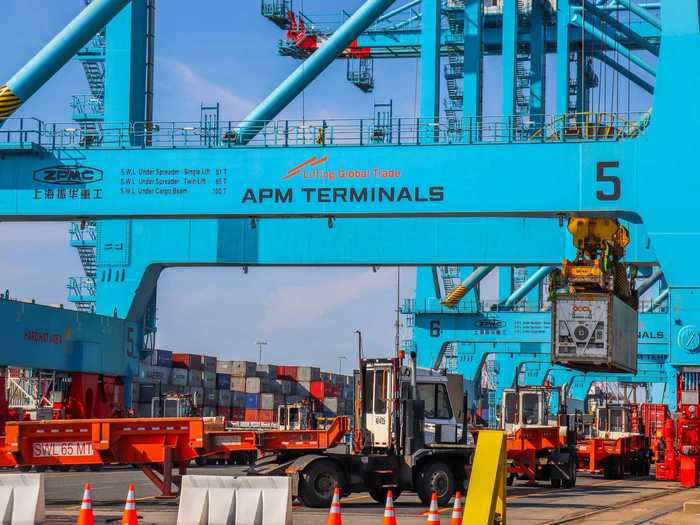
Touring the Port of New York and New Jersey.
Thomas Pallini/Insider
Around 4,700 containers are being dropped and loaded, just under one-third of the CMA CGM Marco Polo's total capacity.
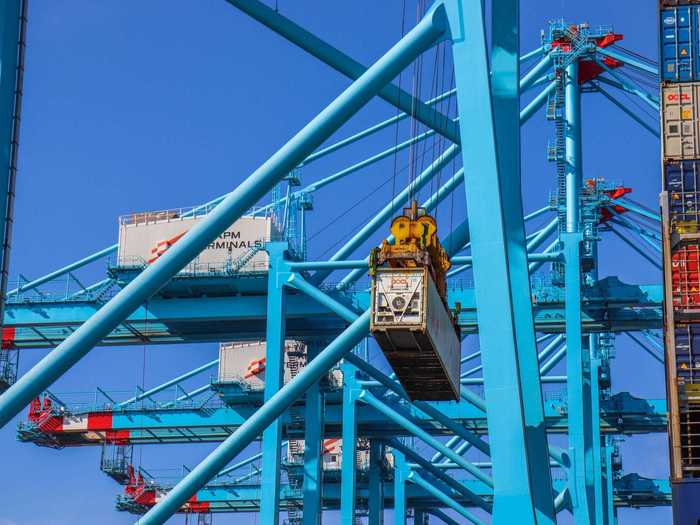
Touring the Port of New York and New Jersey.
Thomas Pallini/Insider
From the bridge of the Marco Polo, it's containers for as far as the eye can see. The Port of New York and New Jersey never shut down operations during the pandemic.
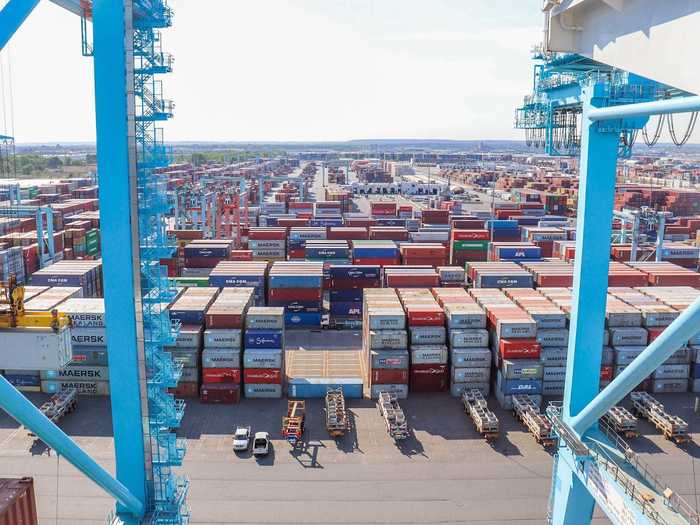
Touring the Port of New York and New Jersey.
Thomas Pallini/Insider
Larger ships coming to the port also requires larger cranes.
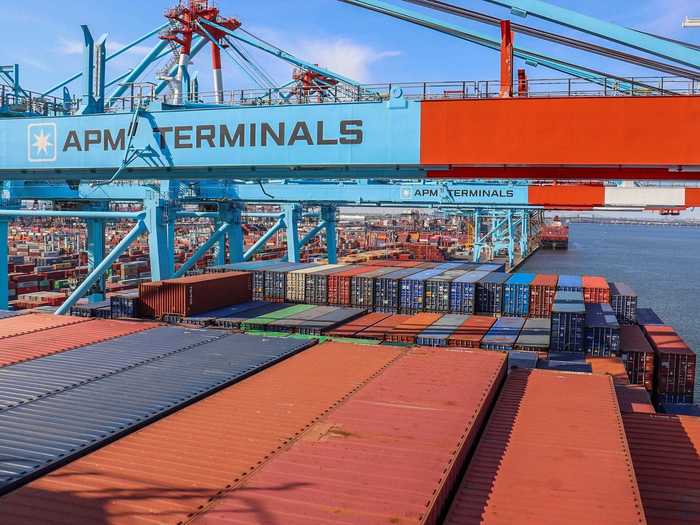
Touring the Port of New York and New Jersey.
Thomas Pallini/Insider
The APM Terminals-operated cranes services the Marco Polo are a staggering 209 feet tall.
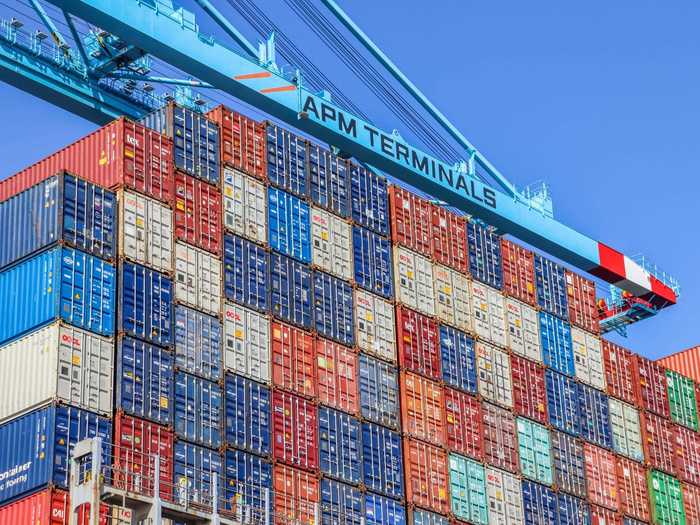
Touring the Port of New York and New Jersey.
Thomas Pallini/Insider
A maximum of seven cranes was assigned to the Marco Polo at its peak to help expedite the unloading process.
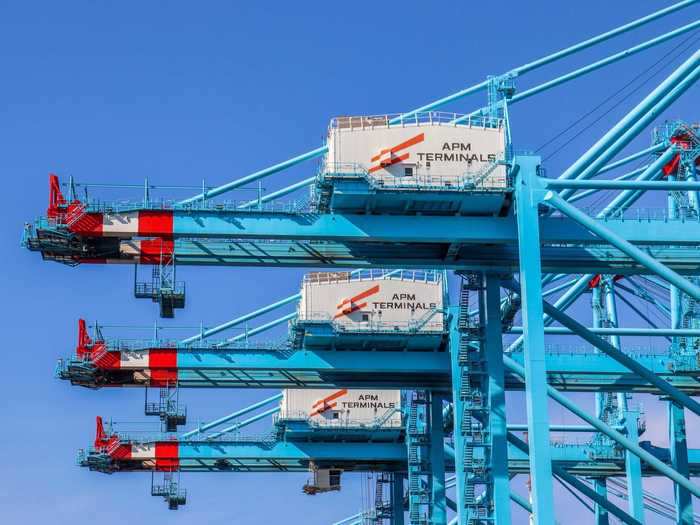
Touring the Port of New York and New Jersey.
Thomas Pallini/Insider
Not every container is searched by US Customs and Border Protection when they enter the country. The agency instead uses complex algorithms to detect anomalies that prompt searches.
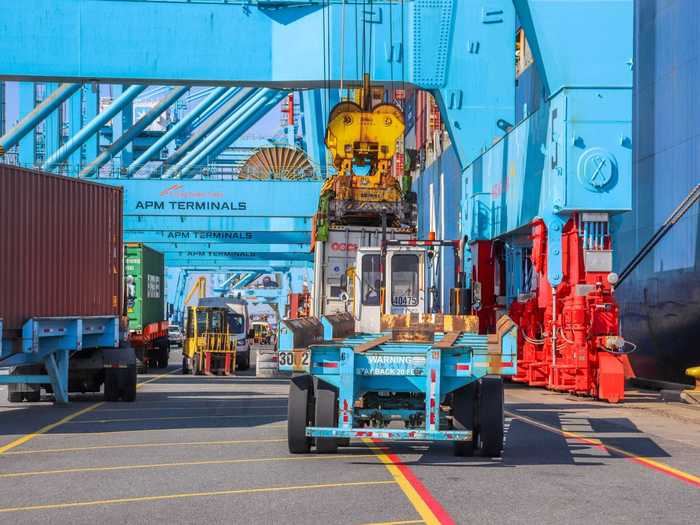
Touring the Port of New York and New Jersey.
Thomas Pallini/Insider
Inspectors, for example, can look at the weight of a container and see if it matches up with the cargo listed on a manifest. If it doesn't, that prompts a search.

Touring the Port of New York and New Jersey.
Thomas Pallini/Insider
Human smuggling isn't a major issue on the East Coast compared to the West Coast, which has closer proximity to Asia, but ships do have to be on the lookout for stowaways.
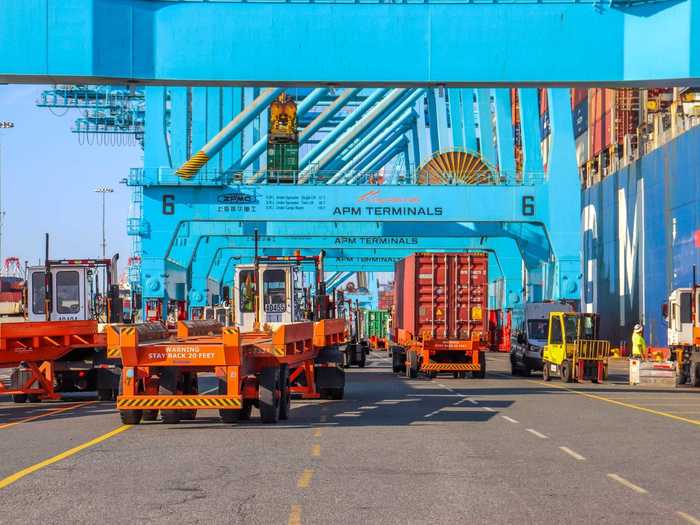
Touring the Port of New York and New Jersey.
Thomas Pallini/Insider
Now that the Port of New York and New Jersey has proven it can handle larger ships, it's only a matter of time before the record set by the Marco Polo will be shattered.
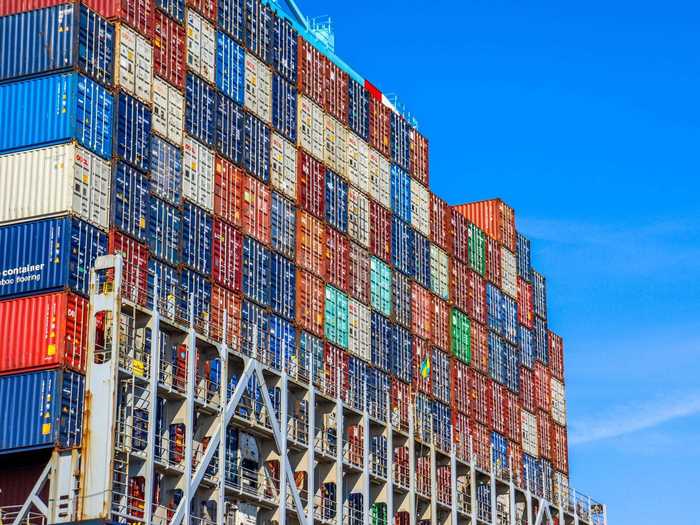
Touring the Port of New York and New Jersey.
Thomas Pallini/Insider
And New York Harbor will continue to receive some of the largest ships in the world.
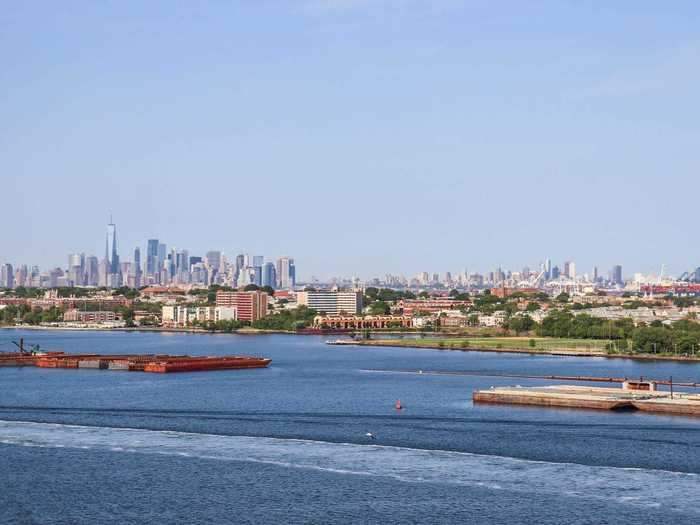
Touring the Port of New York and New Jersey.
Thomas Pallini/Insider
READ MORE ARTICLES ON
Popular Right Now
Popular Keywords
Advertisement